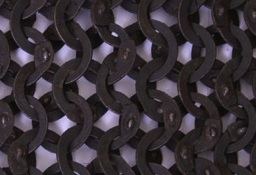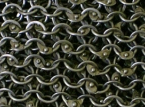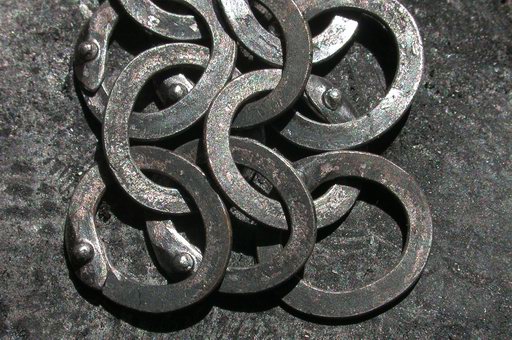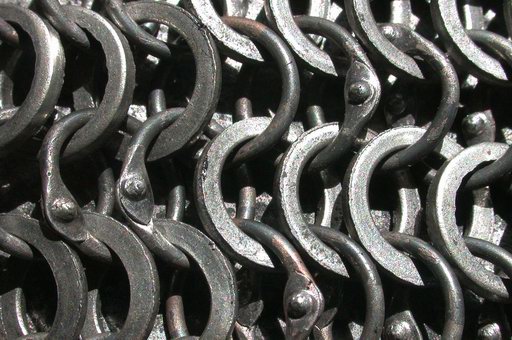Posts: 252 Location: Vermont. USA
Thu 11 Mar, 2010 7:40 pm
Hey guyz,
I wanted throw in my opinion too. I have been lookin around at historical
maille and this is my opinion. I feel that true accuracy is an unattainable goal, even if each and every item is made from scratch (trying to adhere to what we know in terms of construction technique) using all period tools and materials, we still will not have something 100% accurate. So I feel like we must content ourselves with not being perfectly accurate, but do our best to get as close as we can. If we simply go with the idea, "It's never going to be accurate, lets go for what we feel like." we end up with people wearing T-shirts and butted aluminum maille. If someone strives for accuracy it is better, is it not? Let's say one person goes and makes a kyrtle utilizing a pattern from an archeological find, 100% wool, hand-sewn, and with a historical colour, it will be very very close to being accurate, but it may not have been hand dyed with woad and hand woven. It will look
almost right, but not be 100% accurate. Now compare that to a person that takes some bright blue, stretch cotton, and machine sews it into a vague medieval-esque tunic. Doesn't the first person look better?
The same principle applied to maille in this thread could also be applied to blades. Take, for example, the Albion Brescia Spadona, it's a
very nice sword, however the steel was not made in a historical furnace, the leather grip has string under it when it shouldn't...etc...etc... Even my Patrick Barta sword was not perfect. Perfection is unattainable, frankly I am
sure even Erik's maille is not 100% perfect. Nothing ever will be perfectly accurate, thus I feel that each person should do his or her best to get as accurate as he or she can. If the best he can do is Indian mail, than that is the best he can do, and a well made mild steel riveted shirt is a
lot closer to being accurate than say butted aluminum mail.
Z
p.s. guys, to contrast the pics of Erik’s maille I attatched some of the same type of Indian maille
 Attachment: 21.04 KB
Attachment: 21.04 KB

Flat riveted maille
 Attachment: 31.81 KB
Attachment: 31.81 KB

Round rivited and flat solid "Roman" maille



